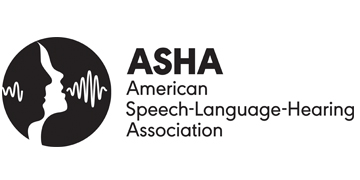Resources
Education & Webinars
Provide Speech/lang education to individuals, groups or facilities.
PAY IT FORWARD Mentorships
Fundamental Information
Blogs to give you more info on communication.
Links
Frequently Asked Questions
What is a Speech-Language Pathologist
A speech and language Pathologist evaluates and treats in the areas of communication, cognition, and voice. Treatment programs are designed to help coach the transgender, non-binary and gender fluid community in order to find communication and identity congruency via an intensive vocal coaching program. Also treatment programs include helping clients affected by stroke, brain injury, head and neck cancer, voice disturbances and other neurological disorders. Treatment also incorporates family/ caregiver training, support and participation as needed.
- Voice and communication modification for the transgender, non-binary and gender fluid community: Treatment includes, breath, pitch, resonance, intonation, rate, non verbal and articulation work.
- Cognitive Impairment: treatment for memory, attention, problem-solving sequencing, and reasoning
- Aphasia: treatment for understanding and/or expressing language following brain injury. Treatment includes speech/language tasks, word finding, strategies for expansion of both speaking and understanding in varied communication situations.
- Apraxia: treatment for speech impairment related to the motor programming of articulation
- Dysarthria: treatment for speech impairment related to the muscles of articulation
- Voice disorders: treatment to improve vocal intensity, vocal quality, and/or vocal range.
What is a voice disorder and how might you sound and feel?
A voice disorder can come about when there is vocal overuse, singing for lengthy periods of time, yelling at a concert, or even constant clearing of the throat. It also can come from trauma, head injury, stroke that causes nerve weakness or damage to the vocal cords. Your voice may sound hoarse, harsh, breathy, shaky and you may feel like you can’t catch your breath when speaking, or that you run out of air. It can be scary for some and also quite emotional for others. Our voice is one of our stronger connections to the world.
What to do?
First, go to an Ear, Nose and Throat doctor (ENT or Otolaryngologist) and get your vocal cords examined. Speech Pathologist do require that you see a physician first before any voice evaluation or treatment.
What to expect?
You will learn appropriate vocal exercises to help engage in proper breathing, release of vocal tension, and to develop a strong and healthy voice. You will also learn about how the voice works, the importance of vocal care, and the mind-body connection between voice and emotion. I will Taylor make a program right for you so that you can finally relax and speak without pain or strain.
- Evaluation – 60 -90 minutes
- Therapy session 50 minutes
- Duration of therapy varies
Contact Me
Ask a question or book an appointment below. For emergencies call 911 or visit your nearest hospital



